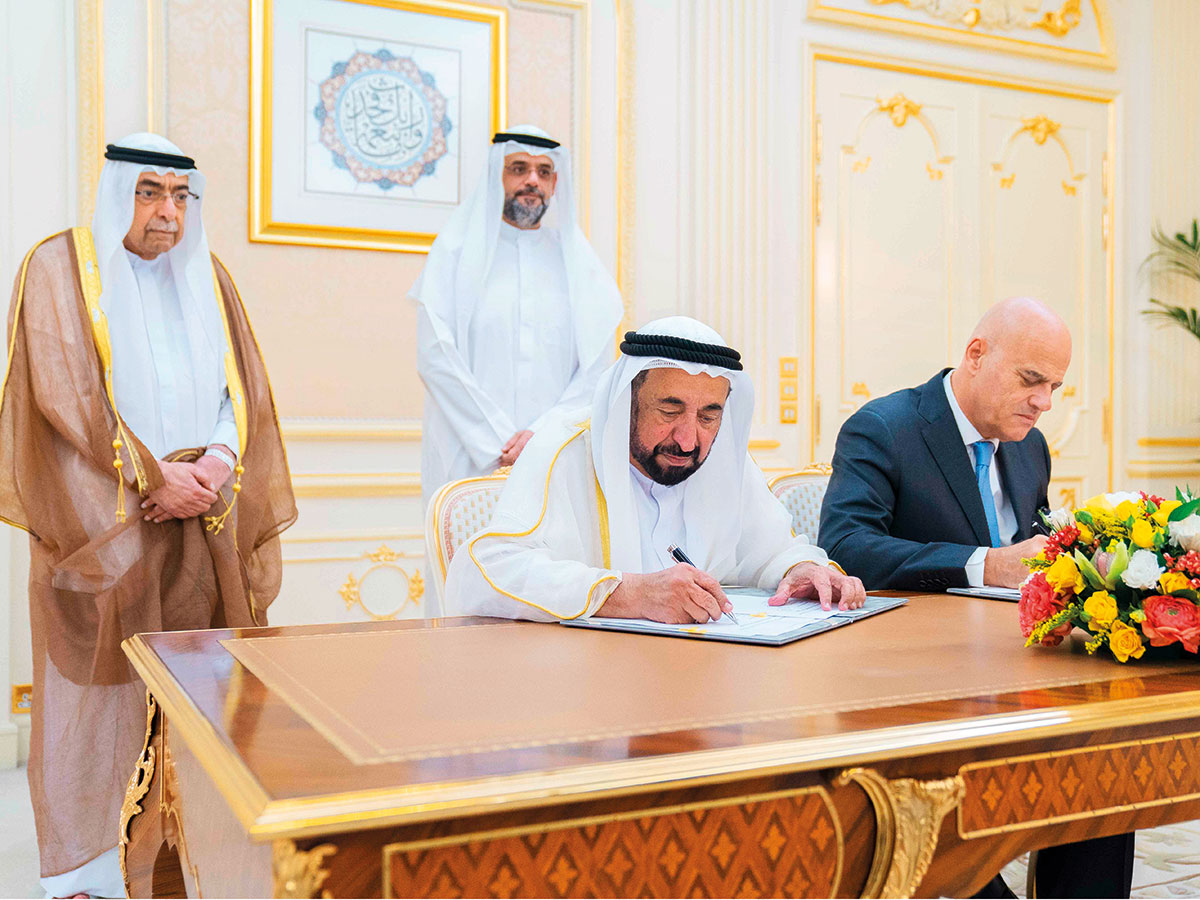The Sharjah National Oil Corporation (SNOC) and Italian energy giant Eni have signed a landmark agreement to explore for oil in Block 7, Ras Al Khaimah. This collaborative venture marks SNOC's first foray into exploration activities outside the Emirate of Sharjah.
Block 7, spanning an impressive 430 square kilometers, is already buzzing with exploration activity. The ongoing drilling of the exploratory well, aptly named Fennec-1, signifies the consortium's commitment to uncovering Ras Al Khaimah's potential oil reserves.
Following the agreement, Eni will retain its role as the operator, holding a 60% stake in Block 7. SNOC's acquisition secures them a significant 30% stake, while Ras Al Khaimah Gas (RAK Gas) will hold the remaining 10%.
Expressing optimism about the partnership, Sheikh Mohammed bin Ahmed Al Qasimi, Vice Chairman of the Sharjah Petroleum Council, emphasized the agreement's role in strengthening collaboration between the Emirates of Sharjah and Ras Al Khaimah. He anticipated positive outcomes from the drilling endeavors, paving the way for further development in the near future.
Chris Wood, CEO of RAK Gas, echoed this sentiment, highlighting the synergy between the three entities. He believes this collaborative effort reflects a shared belief in the potential of Ras Al Khaimah's natural gas resources.
Hatem Al Mosa, Executive Director of SNOC, acknowledged the significance of this venture. He described the deal as a historic moment, marking SNOC's inaugural investment beyond the borders of Sharjah. This strategic move strengthens SNOC's position in the regional energy sector and paves the way for future exploration opportunities.
The agreement between SNOC and Eni is not merely an economic endeavor; it signifies a broader strategic alliance between the two emirates. It fosters collaboration in the crucial energy sector, potentially leading to significant discoveries and propelling the UAE's position as a leading energy producer.
The success of the Fennec-1 well and the upcoming exploration activities will be closely monitored, with the potential to significantly impact the energy landscape of the UAE.

